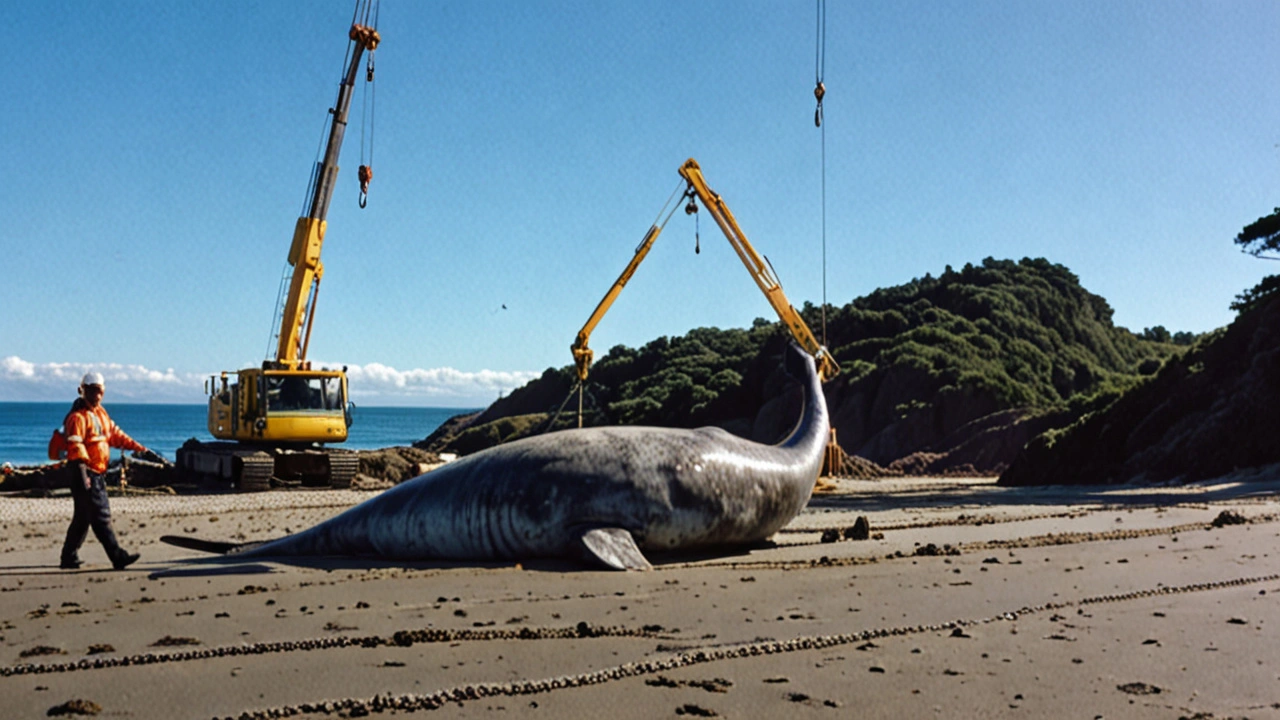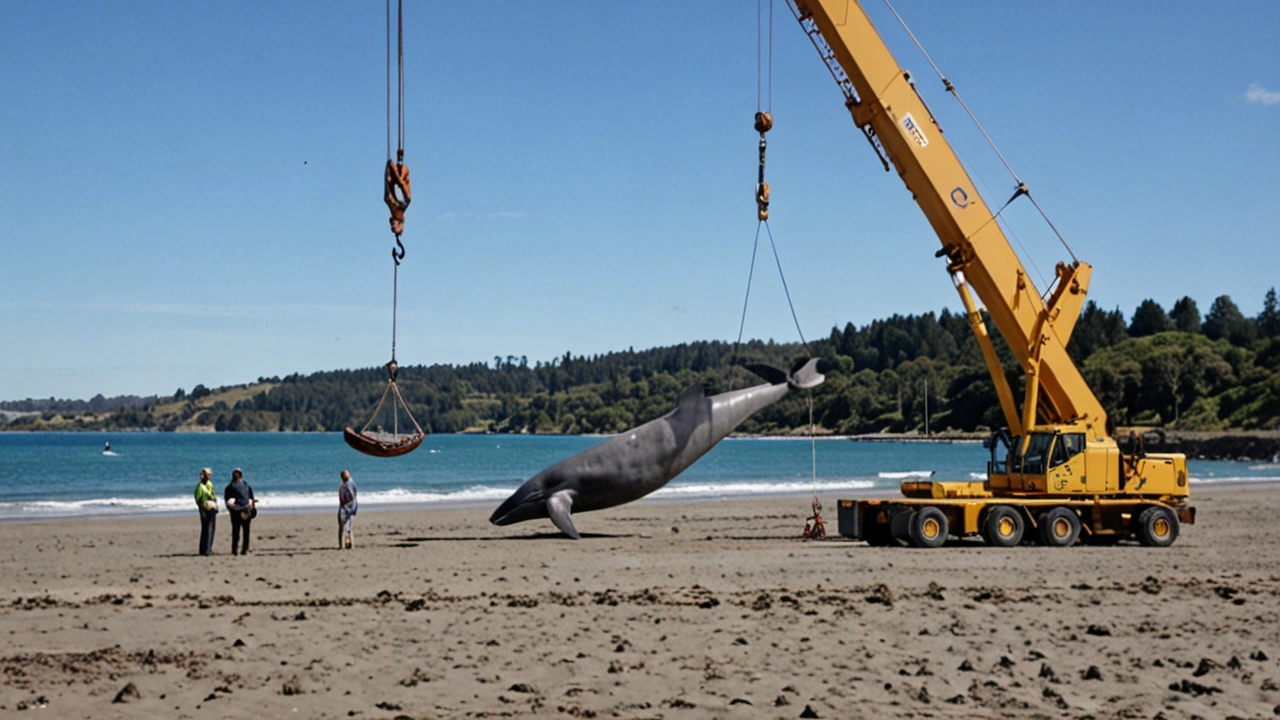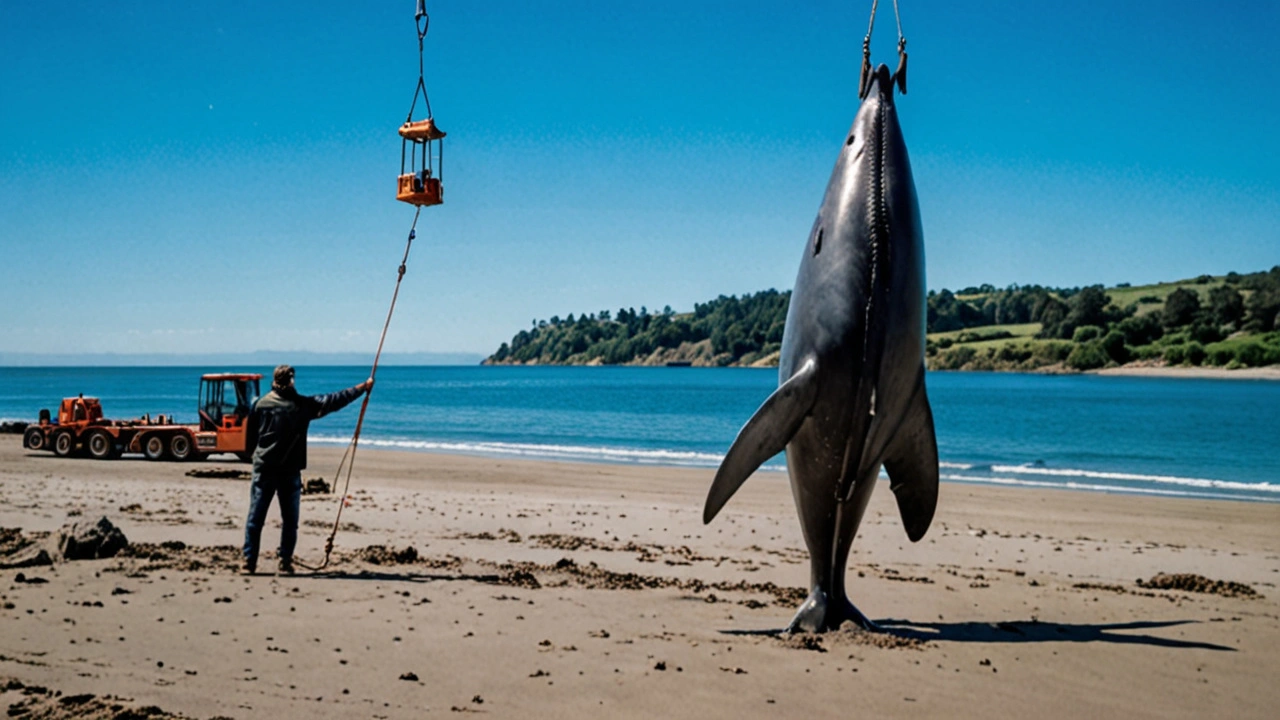
Discovery of a Rarity: Spade-Toothed Whale Washes Up in New Zealand
In a striking event that has sent ripples through the global scientific community, a rare spade-toothed whale washed ashore on a beach in New Zealand on July 16, 2024. The discovery has captivated marine biologists and environmental enthusiasts around the world, primarily because the spade-toothed whale is an exceptionally elusive species. With only six specimens ever studied before, this occurrence opens a new chapter in our understanding of these mysterious creatures of the deep ocean.
The whale's arrival on the shore immediately drew the attention of local officials and international experts. Marine biologists from various New Zealand institutions have been swiftly mobilized to examine the specimen, which presents a once-in-a-lifetime opportunity to gather data and insights that could broaden our understanding of this poorly understood species.
The Significance of the Find
Experts believe that studying the spade-toothed whale can answer many unresolved questions about its ecology, behavior, and physiology. Given the rarity of sightings and the limited number of specimens available for study, every piece of information extracted from this whale is invaluable. The specimen's physical characteristics, dietary habits inferred from stomach contents, and DNA samples could reveal new information about its genetics and its relation to other whale species.
Unraveling the Mysteries
The spade-toothed whale, scientifically known as Mesoplodon traversii, was first described in the 19th century. Despite this long history, the species has remained largely a mystery due to infrequent sightings. Most of what is known comes from fragmented jawbones and skulls that have been found washed ashore. This rare instance where an almost intact specimen has been discovered offers an unprecedented opportunity for research.
International Collaborations
The event has sparked an international collaborative effort among marine biologists, ecologists, and geneticists. Specimens of such rarity tend to galvanize the global scientific community, and this incident is no exception. Institutions from around the world have offered their support and resources to assist in the comprehensive examination of the whale.
An early hypothesis revolves around understanding the whale's migratory patterns, which have long been a subject of speculation. The opportunity to gather tissue samples will allow scientists to use modern techniques such as stable isotope analysis and DNA sequencing to trace possible migratory routes and understand the ecological niche the whale occupies.

A Broader Impact on Marine Conservation
Events such as these do not merely serve scientific curiosity but have broader implications for marine conservation. Discovering and understanding rare species can significantly affect conservation policies and efforts directed towards the protection of marine biodiversity. The spade-toothed whale, although rare, is part of a vast marine ecosystem that is facing numerous threats from human activities, climate change, and environmental pollution.
Insights derived from the study of this whale could prove critical in advocating for stronger marine conservation policies. Understanding the species' behavior, habitat requirements, and threats could all contribute to more effective measures to safeguard not only the spade-toothed whale but also other lesser-known marine species.
New Zealand's Role in Marine Biodiversity
New Zealand has a long-standing tradition of marine biology research and conservation. Its isolated geographic positioning and extensive coastline offer unique opportunities for the study of marine life. Over the years, New Zealand has been at the forefront of numerous marine biology breakthroughs, and this latest discovery adds another feather to its cap. Local scientists are already busy working round the clock to ensure that the data gathered from this find is meticulously recorded and analyzed.
Moreover, New Zealand's experience and established protocols in dealing with marine mammal strandings are proving invaluable. The country's commitment to marine conservation and research has ensured a swift and organized response to this rare event. Experts are conducting thorough examinations including measurements, tissue samplings, and preparing detailed documentation, all aimed at preserving the maximum possible amount of information for future studies.
Public Interest and Awareness
The washing ashore of such a rare species has also attracted significant public interest. News of the spade-toothed whale has spread rapidly, drawing attention not only from within the scientific community but also from the general public. Social media platforms and news outlets have been abuzz with updates and discussions about the discovery.
This rising interest among the public is a fantastic opportunity for educational outreach. By informing people about the significance of the spade-toothed whale and the broader issues of marine biodiversity, scientists and conservationists can foster a deeper understanding and appreciation of the oceans. Increased public awareness can lead to greater support for marine conservation initiatives, which is crucial for the long-term preservation of marine ecosystems.
Future Prospects
The journey to unravel the secrets of the spade-toothed whale is only beginning. As scientists continue their examinations and analyses, it is expected that more discoveries will emerge, shedding light on this enigma of the ocean. Future research might delve into aspects such as the whale's reproductive biology, life span, and specific adaptations that enable it to thrive in its natural habitat.
Additionally, the data collected could pave the way for future expeditions aimed at locating and observing spade-toothed whales in the wild, which would be a monumental achievement in marine biology. With advanced technologies and collaborative efforts, the dream of studying these whales in their natural habitat may soon become a reality.

Conclusion
The spade-toothed whale that washed ashore in New Zealand on July 16, 2024, has already made waves in the scientific world. As researchers dive deeper into their studies, this rare find promises to bring forth valuable knowledge about a species that has long remained cloaked in mystery. It is an exciting time for marine biologists and conservationists alike, as they stand on the threshold of potentially groundbreaking discoveries.
For now, the world watches with keen interest, eager to see what secrets this rare whale will reveal and how its story will unfold. The event underscores the importance of marine research and conservation while inspiring a sense of wonder about the vast, uncharted waters of our planet.




